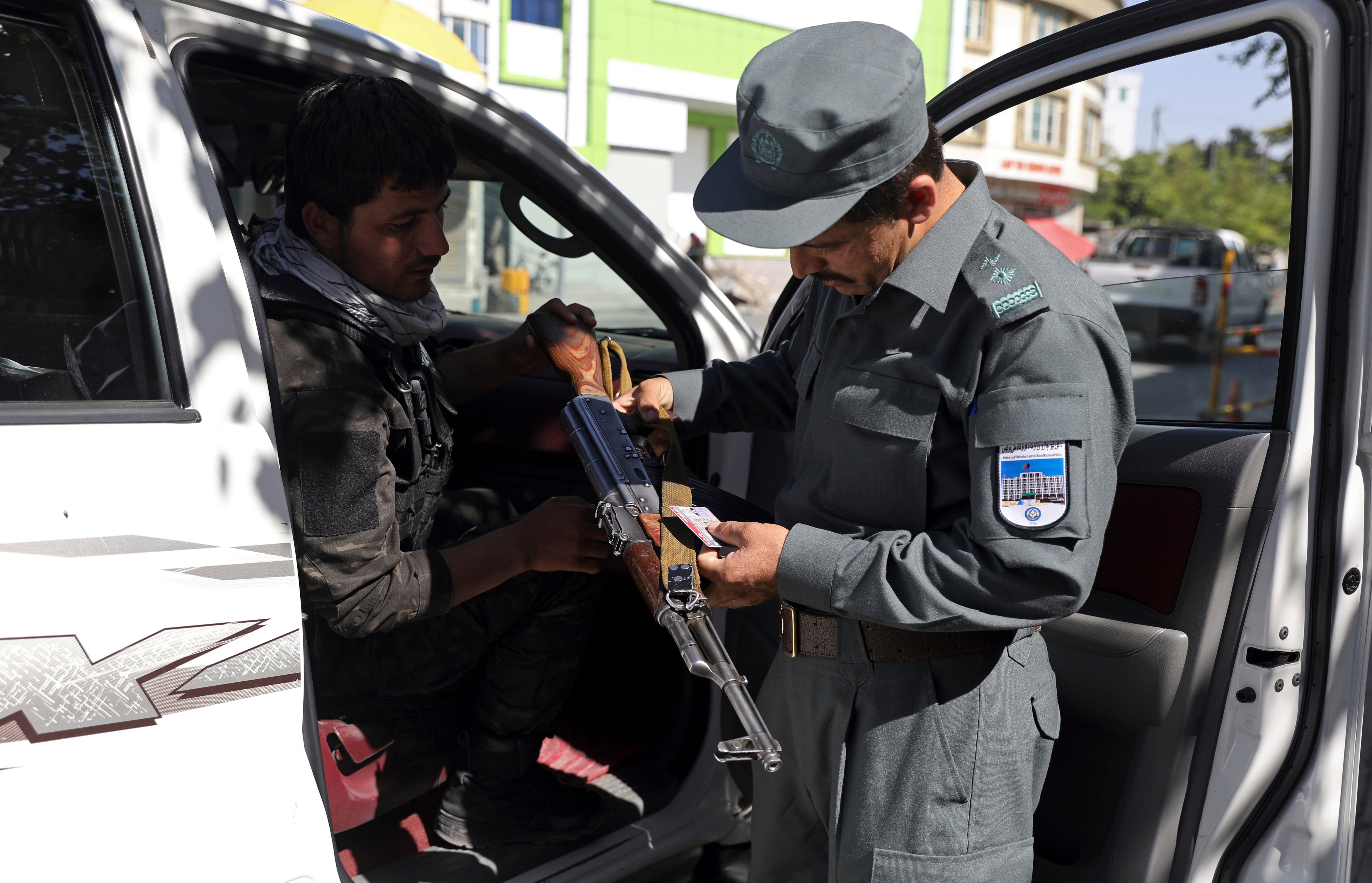Australia closes its embassy in Kabul, others scale back
.Australia says it will temporarily close its embassy in the Afghan capital later this week because of security concerns. That's due to the upcoming final withdrawal of U.S. and NATO troops from Afghanistan at the end of what U.S. President Joe Biden called America’s “forever war.” A number of other embassies in the beleaguered Afghan capital have scaled back. They've sent home non-essential personnel and warned their nationals to avoid travelling to Afghanistan. Those countries also are...

Your support helps us to tell the story
From reproductive rights to climate change to Big Tech, The Independent is on the ground when the story is developing. Whether it's investigating the financials of Elon Musk's pro-Trump PAC or producing our latest documentary, 'The A Word', which shines a light on the American women fighting for reproductive rights, we know how important it is to parse out the facts from the messaging.
At such a critical moment in US history, we need reporters on the ground. Your donation allows us to keep sending journalists to speak to both sides of the story.
The Independent is trusted by Americans across the entire political spectrum. And unlike many other quality news outlets, we choose not to lock Americans out of our reporting and analysis with paywalls. We believe quality journalism should be available to everyone, paid for by those who can afford it.
Your support makes all the difference.Australia is shutting its embassy in the Afghan capital later this week, citing security concerns ahead of the final withdrawal of U.S. and NATO troops in what U.S. President Joe Biden has called the end of America's “forever war.”
Australia announced the temporary closure on Tuesday, and it is to take effect at the end of the week. A number of other embassies in the beleaguered Afghan capital have sent home non-essential personnel, warned their nationals against travelling to Afghanistan and urged those already in the country to consider leaving.
Several embassies contacted by The Associated Press declined to give details of their plans, but many are reported to have scaled back non-essential personnel. That includes the U.S. Embassy, which last month ordered home its non-essential workers.
The last of the 2,500 to 3,500 U.S. troops and 7,000 NATO allied troops will be gone by Sept. 11, generating fears that their departures could increase the chaos and insecurity already plaguing the capital. Violent attacks, many of them unclaimed, have targeted journalists and in many cases the country's minority Shiite Muslims. The U.S. blames those attacks on an upstart Islamic State affiliate.
Embassies in the Afghan capital are located in a so-called Green Zone, considered the most heavily protected. Giant blast walls, barbed wire and steel gates hide the embassies from public view. Streets in the capital have been closed to traffic to protect the buildings.
The Afghan Foreign Ministry said in a statement Tuesday it was committed to providing the embassies with securit. But there is a widespread concern about the ability of the government to provide that protection in a city overwhelmed by lawlessness, criminal gangs and insurgent activity.
Australian government lawmaker Dave Sharma, a former diplomat, said the reasons for the embassy’s closure were “temporary and really related to the ability to secure our staff and personnel when our defense contingent leaves.”
“Whatever we need to do in the short term to protect our people, of course I support, but longer term I think this is a relationship we should and must be in for the long haul,” he said in an interview with Australian Broadcasting Corp.
Australia has 80 soldiers still in the country but at its peak there were 15,000 Australian troops deployed to Afghanistan. Australia's military has been embroiled in allegations of war crimes in Afghanistan and Australia has established an investigative agency to build criminal cases against special forces suspected of committing crimes from 2005 until 2016.
Obaidullah Baheer, a political analyst in Kabul was critical of Australia's decision to close and of other embassies to scale back, saying it undermined faith in the abilities of the Afghan government to provide security.
“Such a move will be seen as a sign of the Australian government’s lack of faith in the republic to defend itself against the Taliban," he said.
However Taliban's political spokesman Suhail Shaheen told The Associated Press it would not harm diplomats and would cooperate to ensure their security.
“They should not have any concerns,” he said.
_______
Associated Press Writers Rod McGuirk in Canberra, Australia and Kathy Gannon in Islamabad contributed to this report